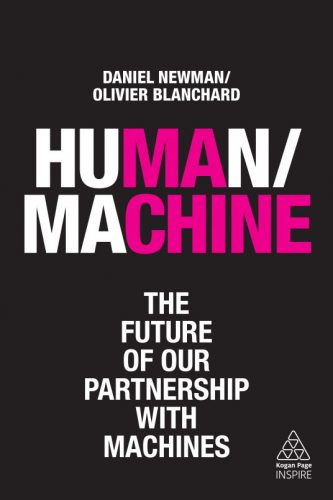Artificial intelligence is changing the world. Many are already offering interesting insights into applying technology to make us better is countless ways. Sadly, Human/Machine: The Future of Our Partnership with Machines fails to provide anything that even resembles valuable information. Here’s why it misses the mark.
Human/Machine Failure
There are no shortage of new books about artificial intelligence. I’ve reviewed 5 others in just the past 6 months. Many provide helpful information on how this tech will transform our world and the ways you can harness it to supercharge your business and life. Human/Machine is such a mess, it falls short of even the most basic books on the topic.
Lack Of Knowledge
First, it seems there’s a lack of understanding around the possibilities AI will enable. The authors seem to have a very narrow view of the tech and what it may be used to accomplish. While it’s seen explosive growth over the past couple years, their view seems to believe that it will suddenly grind to a halt and make very little advancement from its current state over the next 5-10 years.
It’s really by far the most cautious look at AI technology of the numerous books I’ve read on the topic. They avoid even making guesses at where it may take us and instead make AI sound limited. Maybe they don’t understand the opportunities AI will bring, but their failure to understand those possibilities make the technology appear to be far from the game-changer it is. Talk about selling it short.
While they take a very conservative view of AI abilities most of the time, the authors have no problem expunging on the limitations it will be hampered by (in their view). “No matter how advanced machine learning, smart automation, and artificial intelligence get in the next 30 years, they will not develop better complex business decision-making skills than humans.” That’s an INCREDIBLY bold claim and one that most experts seem to disagree with.
Throughout the book, lots of the examples of AI which aren’t actually AI. Sending an email to someone 48 hours before an event is given as an example of AI usage, but such a task in no way requires use of this tech. I can simply schedule an automatic message, in the same way you receive a welcome email when you signup for a newsletter. All that is required are basic web tools that have been around for over a decade.
The ignorance here is unbelievable. “We can go on and on about this, and our conclusion is always the same: an AI can assist and augment but not truly and effectively replace, nor should it.” You can believe it shouldn’t but it’s pure stupidity to believe that AI won’t be able to replace, as we’ve already seen it do many cases already, and without a doubt will even more in the future.
In reading Human/Machine, it’s clear the authors don’t have a great handle on the topic of focus.
Woeful Wording
It’s not just the lack of knowledge that this book suffers from but also the way it’s written.
Throughout the book there are lists and in nearly every case, they’re far too long. You don’t need to list every possible career impacted AI may bring. 3-5 will do. Twenty is far too many. These lists drag on until you skip fully reading them because the point was made long ago. We don’t need countless further examples to understand the impact.
“Machine learning, smart automation and artificial intelligence” is used in sentences throughout the book and I think you’d agree that it’s bit of a long one. Where most abbreviate machine learning as ML and artificial intelligence as AI, that’s never done here. Abbreviations are used so we don’t have to keep repeating long terms needlessly. Please use them.
Often the authors struggle to stay on-topic. When talking about opportunities for workers displaced by future tech, general examples are given for white-collar and other workers then out of nowhere they go on a strange deep-dive into exoskeletons for blue-collar workers. They even explore the various categories to which exoskeleton technology falls. Are these guys getting some kind of kickback from the exoskeleton folks? It was a senseless detour, that was completely off-topic in the context.
As the book goes on, it becomes abundantly clear that the authors were given a minimum length requirement from their publisher and they’re struggling to hit it. Repetition becomes rampant and incredibly drawn-out explanations are everywhere, without warrant. You get to the point of praying for chapters to end, just to make the boring babble stop. A good editing could cut this thing in half.
It’s clear they’re clueless as to how to wrap the book, so it ends with the same arguments and conclusions, which have been brought up and beaten to death throughout the previous 8 chapters.
No Audience, No Thanks
Even if we’re to ignore the countless issues above (which we can’t), possibly the biggest problem Human/Machine faces is that it has no focus. It tries to be a book for those who will potentially be displaced by AI technology, while also trying to speak to where the tech may take us. At the same time it also attempts to guide business leaders, and advise government on laws and more. In trying to be all things to everyone, it ends up being nothing for anyone.
In the end, it’s not even worth bothering with. Human/Machine: The Future of Our Partnership with Machines is mind-numbingly boring, lacks knowledge on the topic it attempts to cover, and simply isn’t worth your time. Skip it and check out one of the other books on the future of artificial intelligence recently reviewed here instead.

